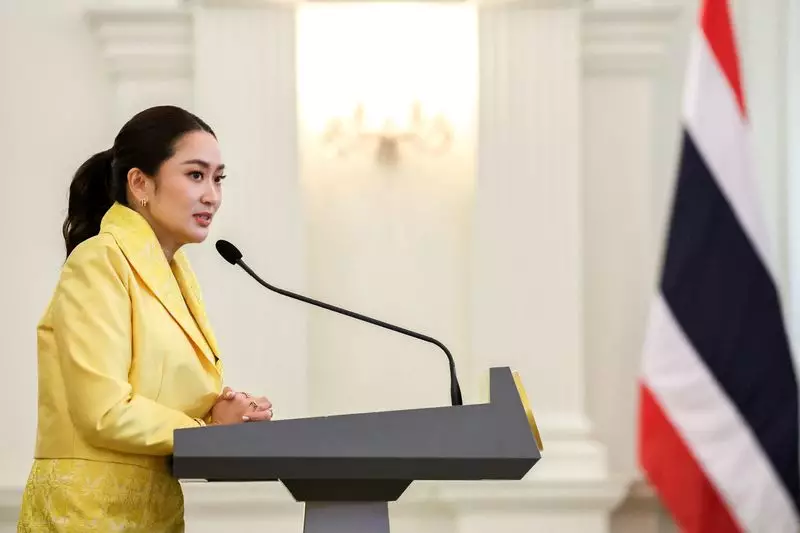Thailand’s newly elected Prime Minister, Paetongtarn Shinawatra, has expressed her commitment to stimulating the economy right away. In a recent special cabinet meeting, she outlined plans to continue the policies of her predecessor, Srettha Thavisin, with some adjustments. The focus will be on debt restructuring, supporting small and medium-sized enterprises, and boosting the agricultural and tourism sectors.
One of the key questions looming over Paetongtarn’s government is the fate of the digital wallet scheme proposed by the previous administration. The scheme, which aims to provide 50 million Thais with 10,000 baht each via a smartphone application, may be subject to adjustments. While Paetongtarn has hinted at changes to the plan, details have yet to be confirmed, leaving many stakeholders in limbo.
As the youngest daughter of former premier Thaksin Shinawatra, Paetongtarn faces significant challenges in her new role. With no prior government experience, she will need to navigate a complex political landscape while dealing with economic hardships and potential legal hurdles. The shadow of her family’s controversial legacy looms large, as she becomes the fourth Shinawatra family member to hold the premiership.
While Paetongtarn has pledged to continue the policies of her predecessor, she will need to find a delicate balance between continuity and change. Adapting existing strategies to the current economic and political climate will be crucial for her government’s success. The pressure is on to deliver tangible results and regain public trust in the wake of Srettha’s ousting.
Overall, Paetongtarn Shinawatra’s leadership will be defined by her ability to address the pressing issues facing Thailand while charting a new course for the country’s future. The road ahead is fraught with challenges, but with determination and strategic decision-making, she has the potential to leave a lasting impact on Thailand’s political landscape.

